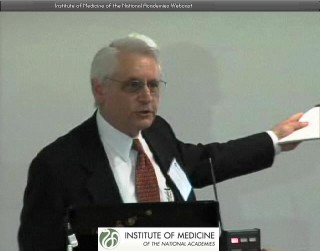
IOM Report: Significant Gaps Remain In Understanding of Lyme Disease
April 22, 2011
The Institute of Medicine (IOM) released their report on April 20, 2011, on “The Critical Needs and Gaps in Understanding Prevention, Amelioration and Resolution of Lyme and Other Tick-Borne Diseases.” The report confirmed what Lyme patients have known for years – that Lyme disease is a serious illness, and significant gaps remain in our understanding of the disease.
At the request of the National Institute of Allergy and Infectious Diseases (NIAID), the IOM was entrusted to plan and hold a two-day workshop to assess the state of the science of Lyme and other tick-borne diseases. A committee was formed, which provided a forum for broad scientific and public input, and produced a summary report on the critical needs and gaps in research.
Although we share the concern with many in the Lyme community that treatment was not included in this workshop, we are pleased that other critical themes were addressed. The National Capital Lyme Disease Association (NatCapLyme) would like to thank the IOM for completing this arduous task with integrity within the guidelines they were charged to respect.
Pamela Weintraub’s powerful presentation at the IOM workshop last October made a notable impression on the IOM Committee. In its preface, the IOM Committee wrote: “Pamela Weintraub spoke eloquently about her personal experience and her family’s challenges with Lyme Disease.” Echoing Pamela Weintraub’s call for research, the IOM report states that “a new environment of trust and a better environment for more constructive dialogue [is required] to help focus research needs and achieve better outcomes.”
We commend the IOM for so effectively establishing the convergence of science with real-life situations and highlighting both the need for more scientific knowledge and the serious societal challenges that need to be addressed.
Importantly, the IOM Committee noted that “the burden of disease is a growing concern.” The Committee recognized that “tick-borne diseases (TBDs) represent some of the world’s most rapidly expanding arthropod-borne infectious diseases, yet significant gaps remain in our understanding and knowledge about them.” Some of the themes discussed in the IOM report suggesting greater emphasis and more research are:
A national integrated research plan for advancing the science on tick-borne diseases;
- A long-term study of Lyme disease and other TBD patients; Educational programs for the public;
- The current status of diagnostic tests and biomarkers for tick-borne diseases;
- Biorepositories for tick-borne diseases; Biological understanding of persistent symptoms;
- The impact of coinfection in severity of human TBDs;
- The role of immune response to tick-borne infection and its effect on bacterial load and disease manifestations;
- Animal models that explore mechanisms of pathogen persistence following antibiotic treatment.
- A diverse group of scientists and physicians with expertise in tick-borne infections discussed a breadth of scientific topics. Some profound insights shared by several of these presenters include:
- “Science is not belief, but the will to find out” (Benjamin J. Luft, M.D.)
“Everyone is studying the early stage of this infection, no one is studying the persistent phase of this infection.” (Stephen Barthold, D.V.M., Ph.D.)
“You do not require an antibody response to develop this disease” (Janis J.Weis, Ph.D.)
“Treat the patient, not the test” (Juan Olano, M.D.)
“[For the child] long-term effects last 50-70 years” (Richard F. Jacobs, M.D.)
“…the poor understanding of the true incidence and geographical distribution…I don’t think we have a clue” (Richard F. Jacobs, M.D.)
“How can you say, ‘I’ve treated you for four weeks and therefore you no longer have Lyme disease.’ The fact is, we don’t know!” (Sam T. Donta, M.D.)
“Under-powered studies which purport to demonstrate universal efficacy need to be viewed with circumspection” (Sam T. Donta, M.D.)
“All that shouting drowns out all the complexity and the nuance and the work that needs to be done” (Pamela Weintraub, senior editor at Discover magazine, and author of Cure Unknown: Inside the Lyme Epidemic)
- “Science is not belief, but the will to find out” (Benjamin J. Luft, M.D.)
In addition to thanking all the presenters, we want to express our gratitude to the Lyme community for supporting our effort to see this workshop through. The thousands of Lyme patients who responded to our surveys and allowed their stories to be shared in “The Human Dimension of Lyme and Other Tick-Borne Diseases: The Patient’s Perspective,” the NatCapLyme paper commissioned by the IOM, provided a valuable contribution to the IOM workshop and report. View The Report Here (p. A-67)
We strongly urge each of you to continue the process that IOM initiated by reading the IOM report so that you can extract from these works what is beneficial to your specific case in your quest to achieve wellness and to overcome the negative effects of Lyme disease. http://www.iom.edu/Reports/2011/Critical-Needs-and-Gaps-in-Understanding-Prevention-Amelioration-and-Resolution-of-Lyme-and-Other-Tick-Borne-Diseases.aspx
The IOM workshop brings us another step closer to improving the lives of Lyme patients and their families who have been profoundly impacted by tick-borne infections, and who have been caught in the crossfire of opposing views for such a long time. The next logical step is collaboration between all stake holders to fill in the gaps uncovered in this workshop concerning diagnosis, addressing the topic of treatment, and the need for a consistency of language in discussing Lyme disease. “Medical progress should no longer be impeded by the polarizing controversy that has characterized Lyme disease research in the past. The dialogue must continue and encourage mutually respectful collaboration across scientific disciplines and among researchers, clinicians and patients, even when view points differ, if we are to make progress.” (Gregg Skall, Womble Carlyle Sandridge & Rice, PLLC)
We implore Congress to fund and the IOM to convene a second workshop that would address research needs for effective treatment for persistent Lyme disease.



